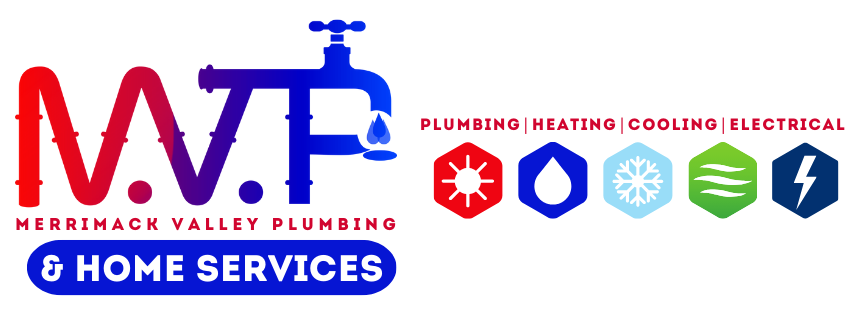6 Habits That Can Reduce the Lifespan of Your Water Heater
Your water heater is a vital appliance that provides hot water for various daily activities. To ensure its longevity and optimal performance, it's important to understand the habits that can potentially shorten its lifespan. By avoiding these common mistakes and adopting good practices, you can extend the lifespan of your water heater and save yourself from unexpected disruptions and costly repairs. Read on to explore six habits that can reduce the lifespan of your water heater and learn practical tips to help you maintain its efficiency and durability.
Neglecting Regular Maintenance
Proper maintenance is essential to extending the lifespan of your water heater and ensuring it functions efficiently. Failing to perform routine maintenance—such as flushing the tank, inspecting the pressure relief valve, and checking the anode rod—can lead to serious problems, including sediment buildup, corrosion, and even costly leaks. Sediment buildup, for instance, can reduce the heater's energy efficiency by making it harder to heat water, while a corroded anode rod can lead to rust and damage the tank. Regular maintenance helps prevent costly repairs or the need for early replacement. To keep your water heater in peak condition, create a schedule for routine checks or hire a professional technician who can identify and resolve potential problems before they escalate. Investing time in maintenance now will save you money and hassle in the long run, ensuring you have consistent hot water for years to come.
Setting the Temperature Too High
Setting your water heater temperature too high not only wastes energy but also puts additional strain on the system, potentially leading to overheating and premature failure. It's recommended to set the temperature to a safe and comfortable level. This not only prevents scalding accidents but also helps your water heater operate more efficiently.
Ignoring Excessive Pressure
High water pressure is more than just an inconvenience—it can put significant stress on your water heater, leading to issues such as leaks, malfunctions, reduced efficiency, or even dangerous ruptures. Consistently high pressure can also strain your pipes, faucets, and other plumbing fixtures, shortening their lifespan and increasing the risk of costly repairs. To prevent these problems, consider installing a pressure regulator if your water pressure exceeds the recommended range. A pressure regulator not only protects your water heater but also ensures the longevity and proper functioning of your entire plumbing system, saving you money and hassle in the long run.
Overloading the System
Overloading your water heater by demanding excessive hot water simultaneously from multiple sources can put unnecessary strain on the unit, leading to reduced efficiency and a shorter lifespan. When too much hot water is required at once, the system has to work harder to keep up, which can result in wear and tear over time. To prevent this, try spreading out your hot water usage throughout the day. For instance, instead of running the dishwasher, doing laundry, and taking a shower all at the same time, stagger these activities. This allows the water heater to recover and function more effectively, ensuring consistent performance and extending its life. Additionally, you might consider installing a high-efficiency water heater or using low-flow fixtures to further reduce the strain on your system.
Ignoring Signs of Trouble
Ignoring early signs of trouble with your water heater, such as strange noises, leaks, fluctuating water temperatures, or inconsistent heating, can make small issues worse over time. These signs often indicate underlying problems that, if left unaddressed, can lead to more significant damage. For example, strange noises might signal sediment buildup, while leaks could point to corrosion or failing seals. Promptly addressing any abnormalities you notice by contacting a professional can save you from unexpected breakdowns and expensive repairs.
Using Hard Water Without Treatment
Hard water, rich in minerals like calcium and magnesium, can lead to sediment buildup in your water heater over time. This sediment collects at the bottom of the tank, creating a barrier between the heating element and the water. As a result, the heater has to work harder to warm the water, reducing its efficiency and potentially shortening its lifespan. Over time, this can reduce the efficiency of your water heater, increase energy costs, and even lead to premature failure of the unit. Additionally, hard water can contribute to corrosion and wear on other plumbing fixtures in your home. To protect your water heater and plumbing system, consider installing a water softener or using other water treatment methods, such as descaling agents, to reduce water hardness and prevent mineral deposits.
By avoiding these six habits that can reduce the lifespan of your water heater and adopting good maintenance practices, you can ensure that your water heater serves you well for many years to come. Regular maintenance, proper temperature settings, managing water pressure, avoiding overloading the system, addressing signs of trouble promptly, and implementing water treatment measures are all crucial steps to maximize the efficiency, lifespan, and reliability of your water heater. Remember, a little care and attention can go a long way in preserving the longevity of this essential appliance in your home.
For more info about this, contact us at Merrimack Valley Plumbing.






